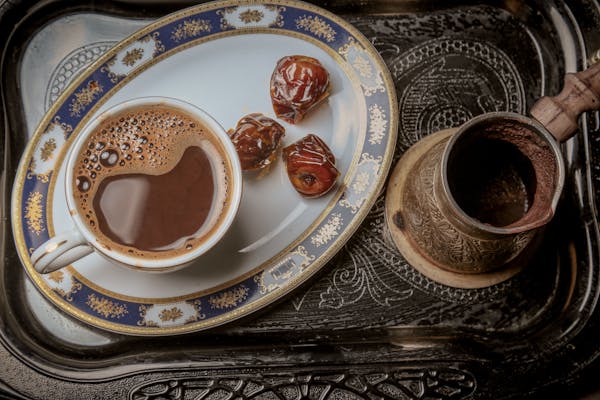Millions of Muslims around the world fast during Ramadan as an important faith practice. From dawn until dusk, people who follow this religion don’t eat or drink. While spiritual growth and self-discipline are the main goals of Ramadan, there is also a lot of interest in improving health during fasting times. Coffee in particular has gotten a lot of attention because it might help people who are fasting. It’s possible that coffee in Ramadan will make it harder to fast.
As an Appetite Suppressant: One of the best things about coffee for people who are fasting is that it can make you feel less hungry. Researchers have found that caffeine, the main ingredient in coffee, makes people feel less hungry and more full. During the long days of Ramadan, when people are fasting and may feel hungry, this can be especially helpful.
More alertness and focus: Fasting can make you feel tired or less able to think clearly, especially during the day when your energy levels naturally drop. Because it is a stimulant, coffee can counteract these benefits. Caffeine in coffee can help people stay awake, focused and active while they are fasting.
Concerns About Hydration: One worry about drinking coffee while fasting is that it might make you lose water. Being a diuretic means that caffeine can make you pee more, which could cause you to lose fluids. But drinking a moderate amount of coffee (within the suggested limits) probably won’t make people very dehydrated, especially if they remember to drink a lot of water when they’re not fasting.
Possible Health Benefits: Coffee doesn’t have many calories by itself, but some traditional styles, like Turkish coffee, may have sugar or milk in them, which adds calories and nutrients. At the same time, many people choose black coffee or with few additions coffee in Ramadan to stick to their fast.
Timing: Some people like to drink coffee right before the fasting period starts (during suhoor, the pre-dawn meal) to help them stay awake and not feel hungry in the early hours of fasting. Some people may choose to drink coffee closer to iftar (the meal in the evening to break the fast) to keep their energy up until they can eat again.
Individual Sensitivities: People should pay attention to their bodies and see how they react to coffee while they are fasting. Some people may find that coffee makes them feel even more hungry or messes up their sleep, while others may be able to handle it well.
Overall, whether or not to drink coffee in Ramadan is a personal choice that depends on personal taste and health concerns. Caffeine can possibly improve the fasting experience by helping people control their hunger, stay focused and stay energized throughout the day if they drink it in moderation and make sure they drink enough water. But it’s important to get personalized advice from medical workers or religious leaders, especially for people with specific health conditions or dietary restrictions.


1 Comment
Comments are closed.